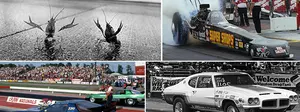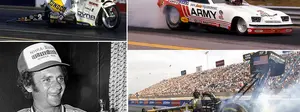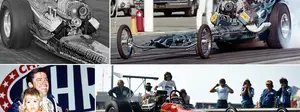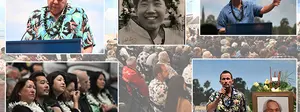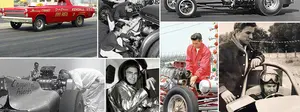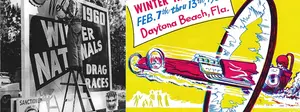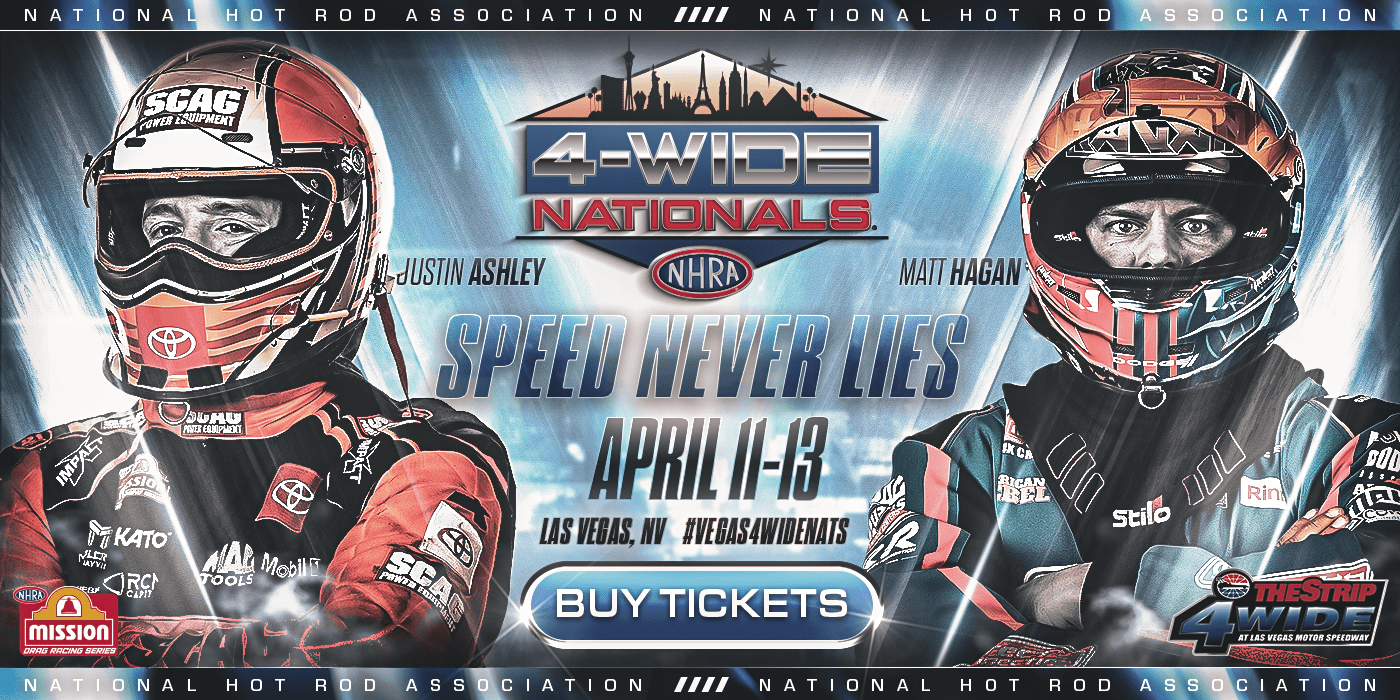
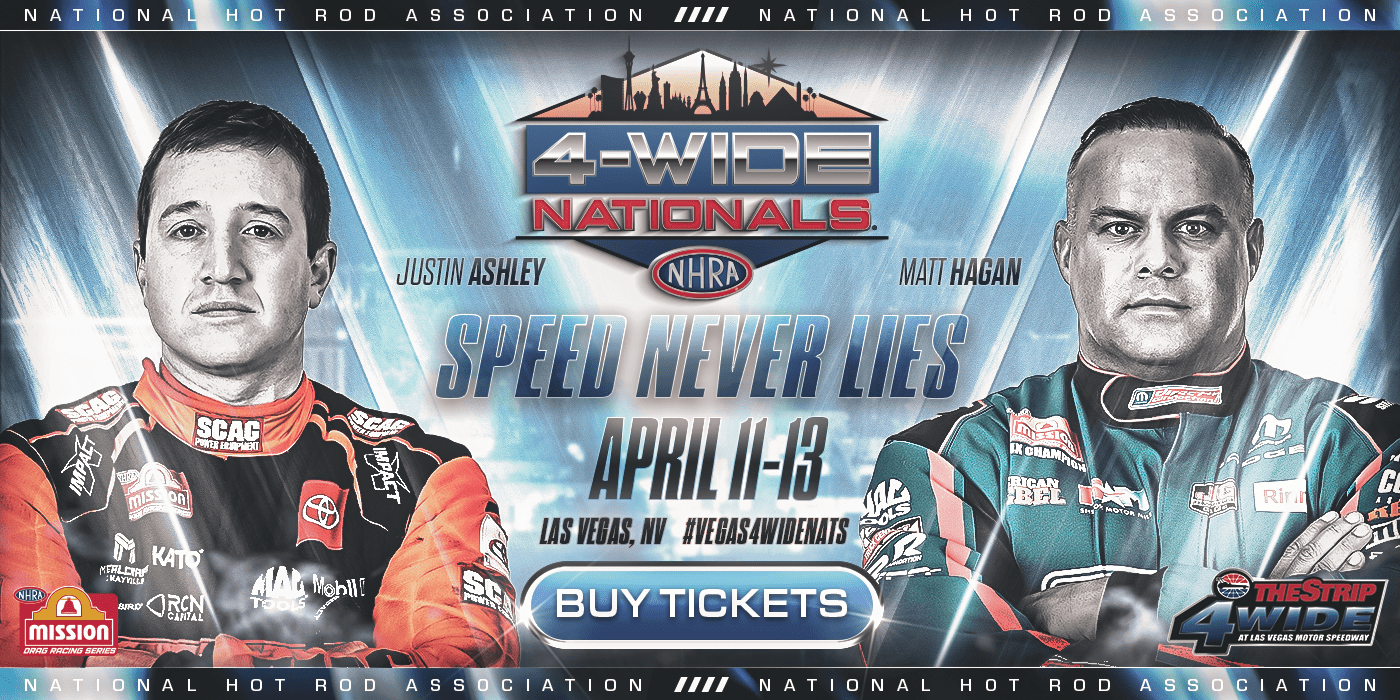
Jeb Allen: Building a new life, one home at a time
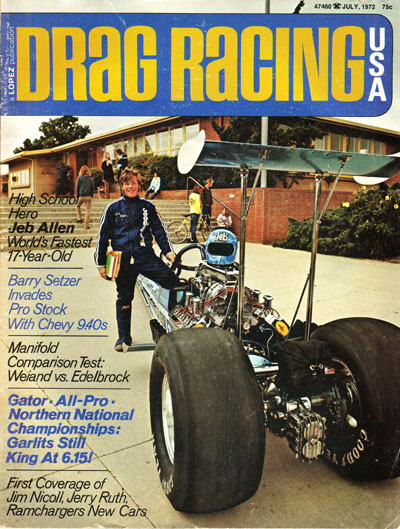 |
From the outside, Jeb Allen looked like he had it all. He was driving a Top Fueler and on the front cover of the sport's most popular magazine, Drag Racing USA, when he was 17. He became a national event Top Fuel winner at 18 and a world champ in all three major sanctioning bodies long before he turned 30. He had a wife and two young sons and sponsorship for his race car.
As a fan in the grandstands, I had cheered Jeb on when he won the 1981 championship in dramatic fashion at Orange County Int’l Raceway, and although I was hired by NHRA the following May, I didn’t get to work an event for National DRAGSTER until his swan song at the 1982 Finals. After that, he largely dropped off the radar screen. Rumors of alcohol and drug abuse circulated, and I know that his many friends here at NHRA mourned his absence and fretted over the turn of events in his life. Because his exit and my entrance roughly coincided, our career paths never crossed.
Until last week.
Out of the blue, Jeb — a regular reader of this column as it turns out — wrote to ask about getting some photos from his racing career because his scrapbooks had been lost in a fire. I asked about an interview. We traded e-mails and missed calls, and eventually he called me, from Taipei, Taiwan, where he was visiting his wife's family and preparing to head for China on a sightseeing trip.
I had heard that Jeb had reinvented himself and had become a successful home builder in Northern California, and I was eager to hear his tale of redemption from the disease that is addiction and his rebirth. It's a subject near and dear to my heart because, you see, I have a very close family member who is, as it's politely put these days, "in the disease."
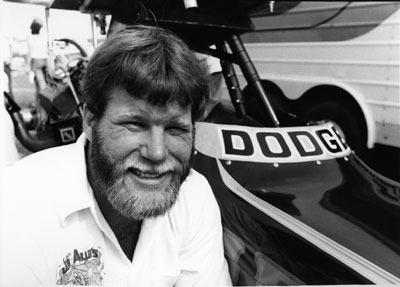 |
I know well that the 12-step recovery program requires, among many other things, a personal inventory, amends, and "rigorous honesty," so I guess I was not at all surprised that Jeb was not embarrassed to share the story of his fall from greatness, and when he found out about my personal connection to his story, he was even more open, kind, and even supportive.
While I'm working on a Jeb Allen career story for my Pure Nostalgia column in this week's National DRAGSTER, I wanted to share this update here because I know a great many of you knew Jeb or of him and because his story is one of the fragile nature of the human spirit and also the strength of the human spirit, and it's a story that could have far-ranging inspiration no matter your station in life.
I don’t mean to get all preachy, but I've sat in on a lot of rehab meetings and counseling sessions lately to know that sobriety is a hard, scary, and challenging thing for an addict, something I think that is hard for those of us fortunate to not to be so afflicted to understand, so I have a huge appreciation for someone who's committed to their sobriety for any length of time, let alone the 22 years that Jeb has been clean and sober.
Even with two decades-plus behind him, he describes himself honestly as "a recovering alcoholic" because, as I have learned, that's the way people who are being successful in their recovery view themselves — as a constant work in progress — but I’d have to say that his recovery is a model, and all you Jeb Allen fans out there should rejoice that your hero is well and back on his feet.
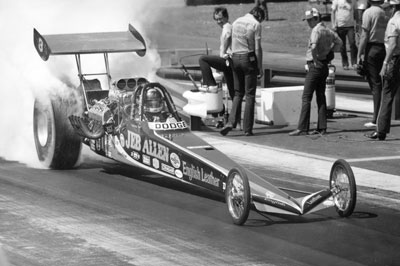 Allen won the NHRA Top Fuel crown in 1981 in this car. Among that year's achievements was a 5.62-second blast at the Gatornationals, a run that finally toppled Don Garlits' amazing 5.63, set in 1975, from the top of the Top Fuel sheets. "That was one of my biggest moments," Jeb says proudly. |
While my DRAGSTER column will go into greater detail, after much initial success in the early years of his career, his terrible two-car accident in Tulsa, Okla., in 1973 with John Wiebe was a real setback, emotionally and mentally. He recovered, of course, and went on to win the AHRA Top Fuel championship in 1977, the IHRA title (and very nearly the NHRA title) in 1980, and, finally, his dramatic NHRA championship in 1981.
What few people, including myself, realized was that despite corporate names such as English Leather and Revell on the flanks of his car, he was running on a shoestring budget.
"All I had was the money they were going to give me," he told me. "Most of the rest of the people I was racing against — with the exception of Shirley Muldowney and Don Garlits — had other means of supporting their race cars. I was hard pressed to have a complete spare motor or short block. It was a struggle the whole time. Every year on my birthday [June 8], my dad would buy me a supercharger; maybe that's why I always do well in Englishtown."
His 1982 title defense was a tough one, mentally and financially, and ultimately cost him his family as well.
"I was getting tired," he admitted. "There were some issues I had festering, and I couldn’t get the sponsorships I needed. English Leather said they could sponsor me again, but they couldn't give me quite as much money. During the latter parts of my racing, I was drinking quite a bit. I never drove under the influence, but at the end of the day, I just couldn’t wait to have a beer and I just drank too much and used drugs. I decided I needed a vacation, and all I did was 'vacation.' It took me until 1988 to get sober.
"I took getting sober just as important as any drag race. For a year, I went to three meetings a day, and all I did was concentrate on doing what I was told and not drinking."
It was the following year that Jeb met his new wife, Sue Tsai, and it turned his world around. He had been doing some construction work in Santa Rosa, Calif., and learned how to build houses. In 1990, he founded Palomar Builders — named after the piping company that his late father, Guy, used to run — and moved north to Redding, Calif., just shy of the Oregon border.
 Highland Park is Allen's newest development. "We've already built 58 lots, and we're under construction on 41 more at this time," he said. " I think drag racing showed me how to get things done no matter what. Just turn on the win light." |
"Sue and I moved to Redding, and there was a lot of opportunity in a small community," he said, "and we've worked our way into being the biggest home builder and largest residential land owner in the city. We own almost 1,000 resident lots. We had some great success in 2005 and 2006; we were selling 150 houses a year."
And now, he's giving back.
"We're pretty well set and have our lives in order, so right now we're really building houses to help support all of the local subcontractors who helped get us there," he said. "We can’t make a whole lot of money doing that, but we’re helping all of these other businesses, and that feels good.
"Once you get your priorities straightened out, good things seem to happen. Everything I ever looked for and wanted out of booze and drugs, I get that feeling every day by being sober. It doesn’t cost me anything, and I wake up feeling good.
"Getting sober is my biggest accomplishment in life."
For a guy with three world championships, national records, and race wins under his belt, that's saying something. Jeb was an inspiration to fellow teenagers like me back in the 1970s, and, apparently, it's a role that he's still playing for me today.
Well done, Jeb. Welcome back.















































